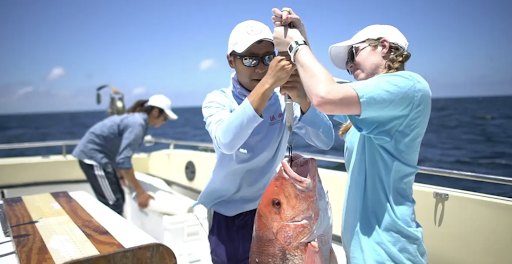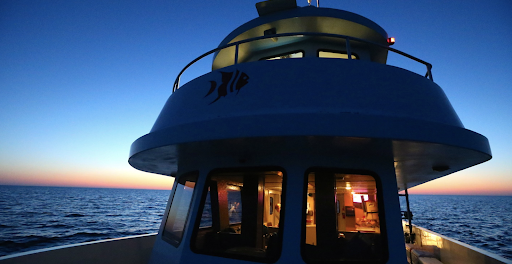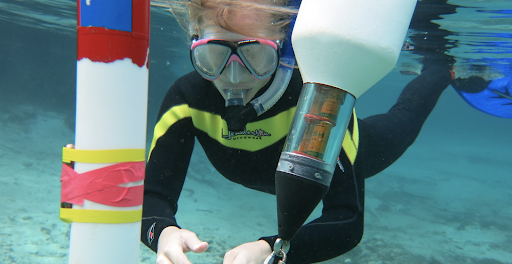Welcome to Stokes School of Marine & Environmental Sciences Home Page
FOX10 News Story: Dr. Brian Dzwonkowski's New Study Shows Concerning Findings in Mobile Bay
Dr. Alison Robertson's Lab Featured on PBS's "Changing Seas TV." Watch the Full Episode Now.
Assistant Professor Open Position
The University of South Alabama has a history of investment in marine sciences education and research, supporting a faculty of renowned experts in a range of marine-related disciplines. Due to USA's location on the Gulf Coast, students gain field experience in many diverse habitats such as the Mobile Delta, Mobile Bay, Mississippi Sound and numerous barrier islands.
The school
- trains the next generation of marine and environmental scientists,
- conducts cutting-edge research,
- and extends the impact of this training and research through service activities.
Programs Offered
Ph.D. and M.S. in Marine Sciences Opportunities at South and the Dauphin Island Sea Lab
The University of South Alabama offers a limited number of graduate fellowships for highly competitive students seeking Ph.D.s as well as extramurally supported graduate assistantship and university-based teaching assistantships for M.S. and Ph.D. students. All fellowships and assistantships offer competitive pay ($18,600 – $24,600), student health insurance and tuition remission.













